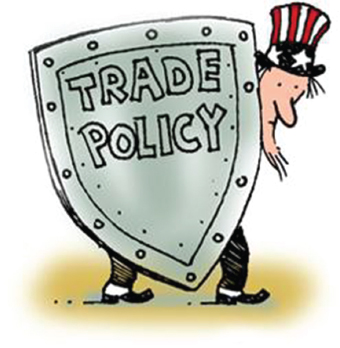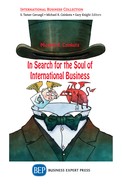The United States and the United Kingdom Must Face New Work Challenges with New Policies

International trade and investment issues are becoming more complex and require major reconsideration by governments, firms, and individuals. No one is exempt from the new policy directions of the U.S. government and the impending British exit (Brexit) from the EU.
These issues are accompanied by extensive security concerns and the need to manage vast immigration flows. Many of the accompanying political battles are not only driven by national options, but reflect the “because we can” principle.
While U.S. policy changes are still under construction, Britain will deliver the EU separation documents consistent with Article 50 of the Treaty of Lisbon by the end of March 2019, which marks the bureaucratic starting point of Brexit.
Americans have typically been isolated from many events and threats by two mighty oceans.
Some say that, rather than walking the walk of diversity, we are ominously close to a road of divisiveness. What is necessary to avoid a dramatic deterioration of global civility, security, and the economy? While understanding and preparation will not remove the thorn of separation, it may help reduce the pain of adjustment.
The British separation encourages other nations to seek acceptance of their special desires as well. But when there is a reallocation of payments and support, who will be the beast of burden and at what price? Also, what is the role of innovation and timing? As the United States has discovered, being the first with good ideas and their implementation does not always pay off.
The self-inflicted British exit can weaken the economic relationship between the United States, Britain, and the EU. A UK departure shifts the entire European unification from an outlook of optimism and growth to a fear of long-term division. Britain’s significance as a business cluster is declining.
Less demand for currency will not only lower the value of the pound and non-Euro currencies, but also give its governments more ability to adjust and manage currency and trade accounts. Relative salaries, housing prices, and innovation will become less robust. The plans of many people to establish their life in Britain will change. Inward tourism may rise, but outward travel will suffer.
What is fascinating, on a psychological level, is the fact that most people, on either side of the Atlantic Ocean, continue in a very protective phase of denial when looking at possible effects, both in the short and long term.
Such a limited focus restrains the willingness to prepare since “it just will not happen here to me.” Time will tell about the wisdom of the reduced response rationale. In the interim, the signs “We are European” may help shore up a countermovement to Brexit.
Trade and investment issues already thought to be settled will require revisitation and new access accords. New negotiations will be harder since all participants remember how things used to be but may not be again. To many, the cost of renegotiations seems wasteful, but not adjusting to new conditions could result in instability, to which Iceland can attest.
The volume of new trade diplomacy and its collateral implications will produce new forms of negotiation, particularly close links to forecasting and new formats of standardization, robotization, and global subcontracting.
American outward FDI will change. Almost one million people in America work for British companies. More than one million people in Great Britain work for American companies. Under the new conditions, these numbers might shrink.
Both the United States and Britain require new relationships that are more individualistic and spontaneous rather than organized by tradition. Social media can play a big role here. Also, highly emphasized traditional business fundamentals, such as competition, risk and profit, and ownership will have to be modified in favor of truthfulness, simplicity, expanded participation, and personal responsibility.
With information resources now easy to obtain, we must search for the spiritual soul of business and make it catch up with the physical body. We all must contribute to find new paths to help others by sharing their burden. In turn, they must be willing to share ours.
It used to be said that the United States and England are only separated by a common language. The near-term future may see more separation of the two by new negotiations. There is the opportunity to improve relations with new negotiators who are not risk-averse.
Using past configurations as milestones can simplify future trade policy, but without mandatory orientation. Bilateral discussions between the United States and the United Kingdom must focus on building strength.
Global openness with reasonable partners, accompanied by transparency and the pursuit of common objectives and supported by balanced consumption are key paths for progress toward a better human condition.
